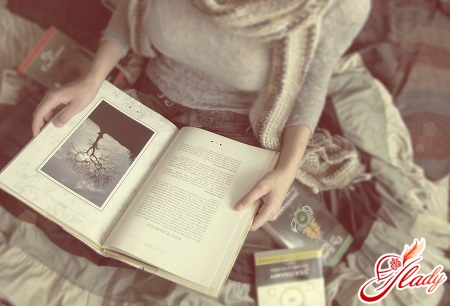 How to tune in to creative work? This question is of concern to the minds of representatives from a wide range of professions, because there is an element of creativity in almost every one of them. A graduate student should first come up with an idea for his diploma, an advertiser - a concept of a PR-company, but we are silent about artists, musicians and writers! In any case, techniques that help to tune in to creative work will be interesting and useful to every person.
How to tune in to creative work? This question is of concern to the minds of representatives from a wide range of professions, because there is an element of creativity in almost every one of them. A graduate student should first come up with an idea for his diploma, an advertiser - a concept of a PR-company, but we are silent about artists, musicians and writers! In any case, techniques that help to tune in to creative work will be interesting and useful to every person.
A little bit about creative work
As we already mentioned above, creative work canbe anything. A person can use creativity in various spheres of life: in technical production, scientific inventions, organizing events, creating art works and even in everyday life and everyday life. The essence of creativity - in creating something qualitatively new, its result can be material or spiritual products. They are always unique, and, most importantly, they can not be repeated by anyone except the author (although, perhaps, he will not be able to!). This is due to the fact that in the process of creativity the author puts into work a piece of himself, his capabilities and resources, and this is what gives added value to the results of his work. Tuning for creative work goes through a number of stages in its deployment:
To carry out creative work for a personYou need special abilities, which in the modern world are called creativity. The concept of creativity includes well-developed verbal and imaginative abilities, fluency, flexibility, speed of switching from one to another, originality, a variety of ideas and strategies, the ability to see the root of the problem and resist the influence of stereotypes. All these features directly affect the speed and quality of performing creative work. 
How to tune into creativity
Often this is much more difficult thantune in to ordinary business. How, for example, is it to prepare for the exam? This, of course, is unpleasant, but simple enough: you eliminate interference and just sit down to learn. However, with creativity, everything is much more complicated, because the muse, which brings inspiration, is capricious, and the phenomenon of creativity is still not fully understood. From what happens in our head during the creative work, the options for tuning into it depend. There are qualities that interfere with creativity - this is conformism, internal and external constraints, stereotypedness, rigidity, and the desire to immediately find the answer. The conformism or uncritical acceptance of the attitudes and opinions of other people hinders the emergence of your own ideas and confidence in quality. The same thing happens with censorship - it resembles a filter in the human psyche that does not let the necessary information into consciousness. Rigidity is the inability to change one's actions or thoughts in accordance with the new demands of the situation. It prevents a person from switching and makes him unprepared for creating new products or ideas. Well, the desire to find an answer simply confuses the thinker, making you think only of him, and not about the essence of the problem being solved. These are the obstacles. What to do with them, hopefully, it is clear - in every possible way to overcome (if you, of course, want to engage in creative work). First, relax and be free from haste. If you can not abstract from the urgency of the task that is being performed, try to simply meditate - it clears your mind clean (that's what it takes to make it happen). Secondly, cultivate traction and resistance to everything new in order to counteract rigidity. To accomplish this is quite easy - regularly do simple exercises like to think up five synonyms for the word "beauty" or, returning from work, change the route every evening. Once a week, do a small reshuffle in one room. Every day, change the order of things on the desktop. In general, there are plenty of options, how you can learn to keep up to date, and, in addition, it will fill you with new impressions and will adjust to the creative way. Third, increase self-esteem and get rid of conformism. The desire to agree with someone else's opinion is an echo of self-doubt, because when you know that your idea or opinion is the best, you do not need anyone else's. There also includes censorship, both external and internal. The latter, by the way, often results from all the irrational and instilled in us from the outside installations: "it's gone", "it's stupid," "it's not necessary for anyone," etc. ... They need to be found and challenged - if it's difficult to do on your own, then enlist the support of an important and influential person. However, all these things are good for the long term. But what needs to be done to tune in to creative work right here and now? Psychologists describe a number of techniques and techniques that can help you in this difficult matter. They are consistent with the general principles of creative work:
- Act in accordance with the stages of becoming. First, a little work on the task before you, and then put it away and do something else, for example, sports (blood flow is activated, hormones are injected into it, speeding up the work of all body systems).
- See as many related materials as possiblewith the solution of your creative task - no one knows where you will get the inspiration you need so much. It is better if they are bright and visual things, also chosen according to different modalities (sight, hearing, touch, taste): photographs, cut-outs from glossy magazines, rhythmic songs, spices or something else.
- Think about the resource situation for you. This memory will stir up positive emotions in you: joy, confidence, calmness, harmony, happiness - choose the situation depending on what condition you need right now. For example, the view of Niagara Falls is suitable for immersion in calmness, and the memory of the exhausted graduation is for joyful experiences.
- If it's hard for you to abstract yourself from unpleasant onesfeelings that are gnawing at you right now, try to find yourself a pleasant but monotonous occupation. For example, write on the sheet of paper a beautiful calligraphic handwriting all thoughts, ideas and words that can relate to the problem you are solving. You will focus on the process of writing, digress from the unpleasant state, and, perhaps, even sketch a couple of interesting ideas.
- Try to look at the problem from different pointsview. It can be very funny and even fun! First look at the project being developed through the eyes of the child - how should it be to attract his attention? Then through the eyes of the old lady - and what will she be interested in? Then, with the eyes of a business lady, a homosexual, a hard worker from the factory, graduates of the Faculty of Philology - the more different roles you will take, the more energy and positive ideas you will absorb.
- Choose the right time and place. Do you have a place that inspires you for creative feats, as well as the time of day in which you are most productive? So, do not break yourself - it's better to use the available resources and put yourself in the situation in which the coming of the muse is most likely.
We examined the most diverse aspects of the creativework. Yes, it is difficult to constantly "creativate" - it's hard, but nothing compares to the satisfaction of the masterpiece created by you, be it the text of a new article, the idea of an advertising strategy or a ready business plan. Few people know that creative work is not just waking up in the clouds, but painstaking work, which our recommendations will help you to fulfill successfully. Creative success to you! We advise you to read:









